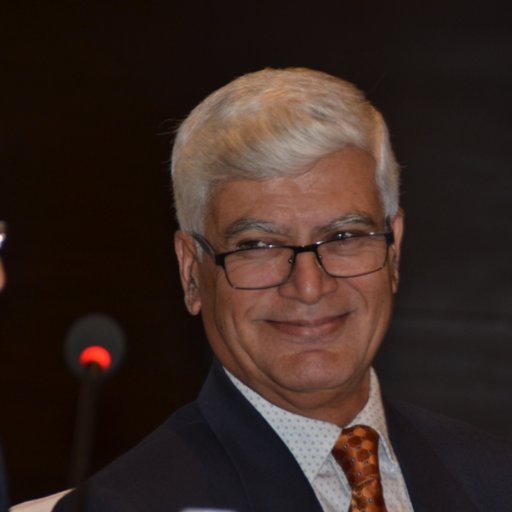Opinion
Post-Doklam reflections
An understanding of history is vital to the study and conduct of international relations (IR). European wars, including the two world wars, are covered in most world history books.
Shambhu Ram Simkhada
An understanding of history is vital to the study and conduct of international relations (IR). European wars, including the two world wars, are covered in most world history books. As a student, teacher and practitioner of IR, a thought had been playing in my mind for a long time. So I started teaching a course on the New Asian Century to a post-graduate class of mostly diplomats and officials of the United Nations and other international organisations at the Geneva School of Diplomacy and IR with the following proposition:
“With their long history of rivalry and wars, a war between the British, French, Germans, Spanish, Austrians and Italians today is not only improbable, but even unthinkable. Can we say the same about the major Asian powers and the main drivers of the New Asian Century? If not, why? If the Europeans can inter-connect themselves through networks of tunnels and trains underneath the ocean and across the Alps and aircraft in the sky, and remodel their statecraft through vertical and horizontal evolution of their institutions, why can’t the great trans-Himalayan civilisations that dominated the early world start combining their traditional wisdom and modern knowledge for a new stage of China-India relations in the 21st Century?”
Channeling Europe in Asia
Conflicts in Kashmir, Kargil, Lipulekh in Nepal and Doklam (Donglang) in Bhutan most recently confirm that the Central Himalaya is one of the epicentres of the post Cold War global paradigm flux. UN University’s Ramesh Thakur and Oddny Wiggon’s have written, “What happens in South Asia will surely shape the contours of the global community in the decades ahead.” This not only substantiates this prognosis but highlights the need for new China-India relations as ‘benign neighbourhood powers’, not threats to each other. China and India have suffered external subjugation and experienced wars with neighbours. Today, they are great powers able to shape global policies, which have made lessons of history so important.
Nepal and Bhutan are situated between India and China; that is a fact of geography. China already has a reserved seat at the global high table, and India will soon reclaim its place there; these are also objective realities. In such a context, how do Sino-Indian relations affect each other and their small neighbours? The question does not end there. With new developments on both sides of South Asia and the Indian Ocean, reflected in heightened tensions on the Korean peninsula, new developments in the East and South China Seas, chaos in the Arab world and tensions in the Gulf, how will other global powers, particularly the current superpower in economic distress and political stress but with influence on global affairs and technological and military superiority, react to developments in the Central Himalaya?
New modus vivendi
As the main drivers of the New Asian Century and the pillars of the coming global political, economic and strategic order stood eyeball to eyeball, not only have the questions raised earlier acquired a new meaning but answers have become even more urgent. This is not just because they are important for smaller neighbours but also because the encounters between Chinese and Indian soldiers along their 3,487 km disputed border and their media wars at new levels may signal a phase of heightened rivalry between the two nuclear powers. This could not only affect peace and prosperity in the trans-Himalayan region but also call into question the sustainability of the New Asian Century. Thank God wisdom prevailed this time, but a long-term modus vivendi must be found.
Debates are raging on the rise of China under communism and India shining with parliamentary democracy inside global powerhouses of ideas. How to fight a war but not on your own territory, and how to win it without your own citizens dying are the most serious questions in the 21st century art, or science, of war.
For those interested only in power and profit, what would be a bigger prize than a war between the world’s most populous nations, largest armies and growing economies with trillions in reserves?
New global paradigm
Big or small, today Europeans exchange their peaks and plains to meet current needs, open borders and share wealth to ensure future common security and prosperity. Rather than engaging in sabre-rattling in the Himalayas and making foes laugh, friends sad and neighbours nervous, Chinese and Indian leaders of wisdom and courage must resolve their differences peacefully, accommodating their mutual concerns and interests and taking their neighbours into confidence.
The neighbours too must help in confidence building by keeping their own houses in order, making concerns clear without ‘playing this or that card’ and contributing with new ideas. Only then will the highly laudable new visions of Xi Jinping’s ‘win-win relations in a community of common destiny’ and Narendra Modi’s ‘sabka saath, sabka vikas’ (collective efforts, inclusive growth) come true, and the peoples of this region can live in peace, enjoying the merits of their own hard work and the prosperity of their neighbours.
National interests guide state policies including foreign policy. But in a globalised world, many problems can be solved only with international cooperation. The UN was created to do that, but had it been effective, would the world be in this state? China and India together with their smaller neighbours can create a new foreign policy paradigm suitable for the 21st century based on national transformation through regional cooperation. This can be the salient feature of a new foreign policy and national security paradigm for the 21st century as countries are passing through the triumph and trauma of their own internal political transition in a profoundly changing region and the world.
- Simkhada is a former permanent representative of Nepal to the UN and ambassador to Switzerland




 20.06°C Kathmandu
20.06°C Kathmandu










